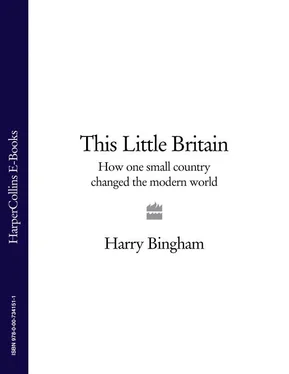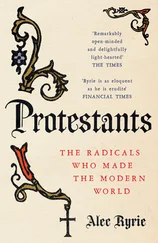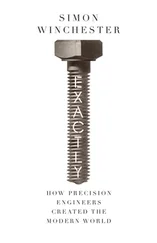The story makes a point. Back then, English was a minor language, with limited projection beyond England’s own boundaries. Today, it is the world’s own language. Back then, it was the unlikelihood of finding a Squanto which made his appearance so miraculous. Today, a traveller could pitch up almost anywhere—any country, any coast, any continent—and hope to find some words of English spoken, by at least some members of the local community. The miracle today is not the rarity of English, but its universality.
That doesn’t mean, of course, that English has become the world’s most commonly spoken language. It hasn’t. A billion Mandarin Chinese speakers dwarf the 350 million or so native English speakers. But that misses the point. To be a global language is to be the preferred means of communication between two parties from different language communities, and it’s here where English is exceptional. On top of the 350 million native speakers, there are perhaps another 400 million speakers in former colonies, plus a billion or so speakers—from Japanese tourists to Swedish businessman—who have simply adopted the language as the simplest means of international communication. This number is growing all the time, not least in China, which will soon have more English speakers than the combined total of all English-speaking countries. No other language remotely compares with the global significance of English. Its lead is increasing all the time.
It’s always tempting to romanticize the language’s dominance, to start muttering about Shakespeare and Chaucer, the flexible euphony of our tongue. But Shakespeare, Schmakespeare. The world speaks English because of British gunboats (and emigrants) in the nineteenth century and American hegemony in the twentieth. If those Mayflower settlers had happened to speak Ubykh, a Caucasian language with eighty-one consonants and only three vowels, or perhaps Rotokas, a Papua New Guinea language with just six consonants and five vowels, then the world would quite likely be speaking those fine languages today.

Meanwhile, English is spreading in other ways too. The Oxford English Dictionary currently lists about half a million words. Its American equivalent, Webster’s, comes up with a roughly similar figure of 450,000. The two dictionaries have, however, much less of an overlap than you might guess. The OED contains more archaic or regional British terms, Webster’s more Americanisms. Putting the two dictionaries together would probably produce an expanded word count of some 750,000 words. (I say probably: no one has ever bothered to work it out.) But even this total excludes huge swaths of English. It excludes terms from the various world Englishes (Singapore English, Jamaican English, Indian English, etc.). It excludes much slang and regional dialect. It excludes acronyms, even those that are usually used as words (CIA, NATO, the EU, and so on). It excludes most flora and fauna. If all these were added in, the word count would probably reach a million. If all scientific and technical terms were added, the count might be twice that. By comparison, French has an ‘official’ dictionary-based word count of less than 100,000 words, German around 190,000.
The sheer scale of its vocabulary is one of the key reasons why other languages are fighting a hopeless battle to keep English terminology out. It is all very well for the Académie Française to invent new French terms to replace Anglo-Saxon intruders, autofinancement for cashflow , for example. But what about those million or so technical and scientific terms— bluetooth protocol, polypropylene, iPod, troposphere? Is the Académie really going to invent new terms for those and all 999,997 others? In 2004, The Economist quoted research which suggested that two-thirds of all Internet content is in English. Scientific and technical journals are also disproportionately anglophone. English isn’t just pushing other languages back, it’s eating into them too.
What of the future? There are roughly two schools of thought. The first takes Latin as its example. The break-up of the Roman Empire led to the break-up of the language. Romanian, Italian, French, Spanish and Portuguese litter the linguistic map, the ruined remains of a once great empire. Romanian and Portuguese speakers may both be speaking linear descendants of the same language, but the languages have long since become mutually unintelligible.
Is this the fate of English? There’s plenty of evidence to suggest it. After all, it’s already slightly misleading to speak of one single language called ‘English’. We have at the very least Indian English, American English, British English, Nigerian English, Philippines English, Canadian English, Pakistani English, Australian English, and so on. (The order of terms in that list might not be a conventional one, but it’s perfectly logical: the terms are arranged in descending order, by size of the English language community.) But this list describes broad types only. Within every genus, there is an abundance of species. Not just Scouse English, but Caribbean Scouse, Pakistani Scouse, Irish Scouse, and so forth. If you sat in a Singaporean student café, among students speaking their version of English, you probably wouldn’t understand what was being said. Perhaps the English break-up is already happening. Perhaps the rot has already set in.
Or then again, perhaps not. The counter-argument is simple: call it the eBay paradigm. In a world of highly competitive markets, eBay is rare and extraordinary in having virtually no meaningful competition. How come? Simply because eBay was the first, and as such it started out with the most buyers and the most sellers. Buyers naturally flock to the system with the most products to choose from. Sellers naturally gravitate to the outlet with the largest number of buyers. Unless eBay does something horrendous to mess up, its position is and will remain unrivalled. What’s true of beanie toys and second-hand clothes is all the more true of a universal language. If you’re an ambitious student keen to acquire a second tongue, which one does it make most sense to master? Obviously the one that gives access to the largest possible number of fellow speakers. So the larger the number of English speakers, the greater the incentive for others to to learn it. Dominance feeds dominance.
There perhaps lies the real point about that Singaporean café. If you were sitting there, sipping your bandung and picking at your fish-head curry, it’s likely that your fellow diners would notice your difficulty in making sense of their conversation. So they’d probably just shift the way they spoke. From the idiosyncrasies of Singaporean youth English to something like an international Standard English. That Standard English would still be noticeably local in flavour. It would certainly be American tinted. But you’d understand it. They’d understand you. That’s the point of a universal language. It makes one world of us all: a world of Squantos.
LITERATURE
Конец ознакомительного фрагмента.
Текст предоставлен ООО «ЛитРес».
Прочитайте эту книгу целиком, купив полную легальную версию на ЛитРес.
Безопасно оплатить книгу можно банковской картой Visa, MasterCard, Maestro, со счета мобильного телефона, с платежного терминала, в салоне МТС или Связной, через PayPal, WebMoney, Яндекс.Деньги, QIWI Кошелек, бонусными картами или другим удобным Вам способом.












